Amex loses EU appeal on BA Amex interchange fees – what next for loyalty co-brand cards?
Links on Head for Points may support the site by paying a commission. See here for all partner links.
The end could be approaching, medium term, for the free British Airways American Express credit card after American Express lost a key European Union ruling last week.
The decision is highly likely to mean that merchant fees on the British Airways, Starwood, Nectar, Costco and Harrods American Express cards must be capped at 0.3%. American Express Gold, Platinum, Business Gold and Business Platinum will remain uncapped.
In effect, although this is not strictly how it works, the interchange fee is the fee charged to a retailer for accepting a payment card.
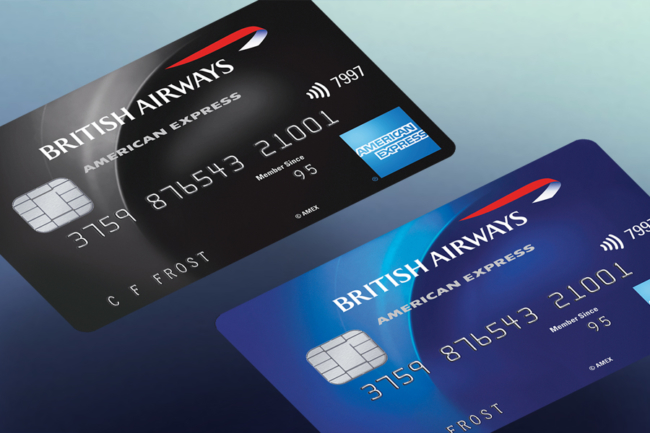
You can read the full Advocate General ruling here.
This is not binding on the High Court of Justice for England & Wales but – as it was they who asked the EU Advocate General for his opinion – it is almost certain to be accepted.
It doesn’t take a genius to realise that the free British Airways American Express is a dead duck long term with 0.3% interchange fees, given that Amex will be paying BA something close to 1p per Avios for the points. Interest income and interchange and FX fees from foreign usage are unlikely to fill the gap, especially with 2-4-1 vouchers to fund as well.
Given that the BA Amex cards have billings of over £1 billion per month, however, it is a problem that both BA and Amex will need to solve before the current contract expires.
Background
Let’s step back a bit.
Last year, the EU capped the interchange fees charged by Visa and Mastercard at a maximum of 0.3% for personal credit cards. Fees were previously 0.75% and above.
It claimed, arguably correctly, that the two companies were exploiting their oligopoly on payment processing by charging disproportionate fees, especially as all of the risk was taken by the retailer (in case of charge backs) and the card issuer (in case of bad debts).
In theory, American Express should have nothing to do with this. Amex is vertically integrated and there is no intermediary sitting between the retailer and Amex who is adding additional fees. A retailer was free to either work with Amex, paying the fees they requested, or not.
The EU law is badly worded, however. It states (and this is a massive simplification on my part) that personal cards which involve four parties – for Visa, this is the customer, the retailer, the payment processer and the card issuer – must have their interchange fees capped.
American Express Gold and Platinum charge cards, and Platinum cashback cards, clearly only have three parties involved in the process – the customer, the retailer and Amex. No problem there. These cards are not and will not be capped.
However, the court has found that, as drafted, a Amex-issued card with a co-brand partner means that there is a fourth person in the relationship. The BA Amex involves British Airways, American Express, the retailer and the customer. And if a card has four parties involved, it MUST have its interchange fees capped at 0.3%.
This is the question put to the Advocate General:
“The referring court asks the Court of Justice to clarify whether, in those circumstances, the activities of a three party scheme can be treated as those of a four party scheme, for the purposes of the Regulation in all cases (in other words, it is sufficient that there is a co-branding partner or agent) or only if a co-branding partner or agent is a payment service provider which issues the cards.”
The latter bit – “only if a co-branding partner or agent is a payment service provider which issues the cards” – is what happens when MBNA issues an American Express card. No-one is doubting that these cards should have their interchange fees capped.
Surely, though, there is a huge difference between MBNA licensing the Amex brand in order to issue a credit card and American Express using the BA brand to sell its own cards? As the ruling admits:
“[the co-brand partner would] merely provide the three party scheme with access to their customer base”
And:
“Amex and the United Kingdom Government submit that, if the co-branding partner or agent confines its activity to the distribution of cards, technical payment services or simply the processing and retention of data, it does not act as an issuer, so that arrangements for the extension of three party schemes are not covered by Articles 1(5) and 2(18) of the Regulation, which means that they cannot be considered to be the same as four party schemes.”
What is more complex is that American Express doesn’t even charge interchange fees because there is no intermediary. There are no interchange fees to cap. Instead, it has to cap its general fee charged to retailers.
To give an example of how this comes down to interpretation of the exact wording of the law:
“In their submission, Articles 1(5) and 2(18) of the Regulation refer to three party schemes which ‘issue [cards] with a co-branding partner’ and which ‘issue [cards] through an agent’. They [Amex et al] contend that the terms ‘with’ and ‘through’ show that the co-branding partner or agent must be involved in the issuing of the card, to which end they rely on the connection between those provisions and other provisions of the Regulation.”
Amex lost:
“In short, Articles 1(5) and 2(18) of the Regulation must be interpreted as meaning that a three party payment card scheme issuing card-based payment instruments with a co-branding partner or through an agent must be classified as a four party payment card scheme, regardless of whether or not the partner or agent is involved in the issuing of cards and/or the acceptance of payments.”
What does this mean for the British Airways American Express and other co-brand Amex cards?
We can’t be sure. In the short term, nothing, because the existing contract will continue to run. Unless there are a lot of people paying interest, it is likely that American Express will now be swallowing losses on every transaction on the free British Airways American Express.
The British Airways Premium Plus card, with its £195 fee, looks secure. I can see how the economics of that card continue to make sense in a world of 0.3% merchant fees.
If we look at what MBNA has just done with the American Airlines credit card, we can see what may happen to the free BA card:
As of last month, the MBNA AA card is £70 per year (previously free)
The Visa card now earns an impressive 1.25 AA miles per £1 (previously 0.75 miles per £1)
There is a 15,000 mile sign-up bonus
There are no incentives for long term spending on the card (a mistake, in my view)
My article on the changes to the AA card is here.
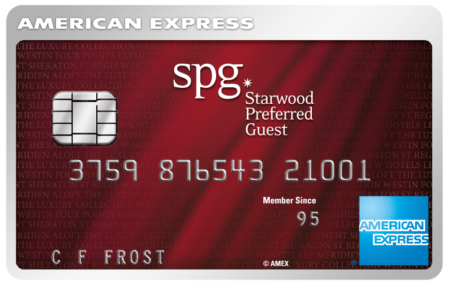
Amex has a strategic problem in the UK
With its fees on co-brand cards capped at the same level as personal Visa and Mastercard products, there should no reason for shops not to accept it. Amex acceptance could become universal. This is a great opportunity if the company chooses to embrace it.
Except ….. for that to happen, Amex would have to slash the rate on the Gold and Platinum charge cards and Platinum cashback cards too, even though it doesn’t have to. Shops won’t welcome Amex with open arms if they know that they will still get legged over if the cardholder pulls out a Preferred Rewards Gold instead of a British Airways Amex.
Shops have this problem with Visa and Mastercard too, to be fair. They still pay full interchange fees on cards issued outside the EU, on premium cards such as Mastercard World Elite and on business Visa and Mastercards. In theory shops will be allowed to refuse cards which charge a fee higher than 0.3% but it is very unlikely that they will. It would require terminals to display the fee after a card is swiped and for the retailer to then decide on the spot whether to continue or refuse the transaction.
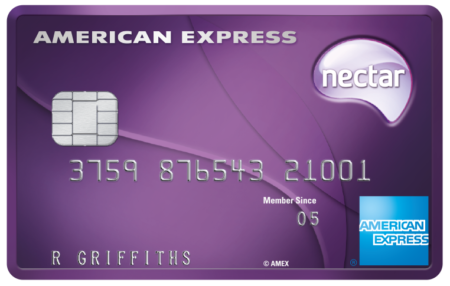
How far is Amex willing to bend to protect £1+ billion of monthly billings?
Good question. The free British Airways American Express card at 1 Avios per £1 has an earnings rate 3x – 4x higher than the Lloyds Avios Rewards (0.25 Avios per £1, £24 fee) or Tesco Clubcard Mastercard (0.3 Avios per £1 if you convert, free).
Arguably, you could charge £50 per year for the basic BA Amex and would still represent decent value for a high spender if Amex was accepted everywhere.
You can’t just compare it to other Avios cards, however. There are plenty of cashback Visa and Mastercard products which seem to survive with 0.5% rewards when paid in store vouchers. At a £50 fee, anyone spending under £10,000 a year on the free BA Amex would be better off dumping it for a free ASDA (or John Lewis, or Amazon) credit card paying 0.5% back in vouchers.
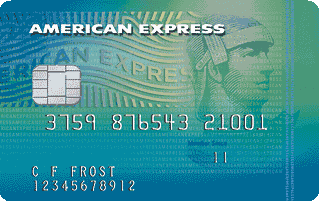
Perhaps the benefits package needs to change
I have been saying for a while that I expect airline status to become available via a credit card in the medium term.
Would you pay £495 for a new British Airways Elite American Express card which came with BA Silver status, potentially with a £20,000 spending threshold?
Would you pay £195 for the British Airways Premium Plus if the earning rate was cut to 1 Avios per £1 but you also received free British Airways Bronze status?
Or perhaps the driver is tier points and Avios?
Would you spend more on your American Express cards if you also received 1 British Airways tier point for every £50 spent?
That would give Silver with a £30,000 spend even if you took no flights.
Or perhaps 1 tier point per £100 spent, allowing the top tier of spenders to receive Silver status with £60,000 of purchases?
That seems too high. £30,000 may be more likely, unless BA intended these tier points to be a top up rather than the sole way to status.
There will also be more dedicated business credit cards. Almost no-one knows that there is already a British Airways Corporate American Express card. This card will not have its interchange fee capped, and it makes sense for American Express to put a lot more marketing effort behind it.
This is the future, I believe. A future where co-brand partners need to bring more to the table if they want to keep their logo in your wallet as a marketing tool.
For years the airlines and hotels have had it all their own way. They found a way of placing their logo in a prominent position – on a payment card – where you would see it every day. And, instead of actually paying for this exposure, they were making money, lots of money, from it.
Those days are gone. It would be a foolhardy loyalty programme that decided to walk away from such an amazing marketing tool though, even if they have to actually spend money – instead of making money – to achieve it.
Is this the new model?
The IHG Rewards Club Premium Mastercard is the model. This is a very clever piece of work, and qudos to the IHG and Barclaycard teams who came up with it:
You pay an annual fee of £99, so the card issuer is guaranteed revenue
You receive free Platinum status in IHG Rewards Club, so there is a reason to keep it long term
You earn 2 IHG Rewards Club points per £1, which count towards status – which means that high card spend helps push you towards top-tier Spire Elite
You get a free night voucher for spending £10,000 per year on the card – which, given it could be worth £250+, you’d be crazy not to aim for
Change ‘IHG Rewards Club’ for ‘British Airways’ in the bullet points above, tweak the numbers and I think you have the model for where we will see the two British Airways American Express cards in a few years time.
Want to earn more points from credit cards? – April 2024 update
If you are looking to apply for a new credit card, here are our top recommendations based on the current sign-up bonuses.
In February 2022, Barclaycard launched two exciting new Barclaycard Avios Mastercard cards with a bonus of up to 25,000 Avios. You can apply here.
You qualify for the bonus on these cards even if you have a British Airways American Express card:

Barclaycard Avios Plus Mastercard
Get 25,000 Avios for signing up and an upgrade voucher at £10,000 Read our full review

Barclaycard Avios Mastercard
5,000 Avios for signing up and an upgrade voucher at £20,000 Read our full review
You can see our full directory of all UK cards which earn airline or hotel points here. Here are the best of the other deals currently available.

British Airways American Express Premium Plus
25,000 Avios and the famous annual 2-4-1 voucher Read our full review

American Express Preferred Rewards Gold
Your best beginner’s card – 20,000 points, FREE for a year & four airport lounge passes Read our full review

The Platinum Card from American Express
40,000 bonus points and a huge range of valuable benefits – for a fee Read our full review
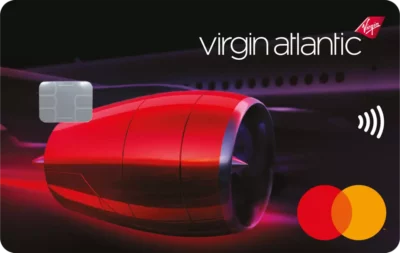
Virgin Atlantic Reward+ Mastercard
15,000 bonus points and 1.5 points for every £1 you spend Read our full review
Earning miles and points from small business cards
If you are a sole trader or run a small company, you may also want to check out these offers:
SPECIAL OFFER: Until 12th May 2024, the Capital on Tap Business Rewards Visa card is offering a bonus of 30,000 points, convertible into 30,000 Avios. You must have a Limited Company to apply. Click here to learn more and click here to apply.
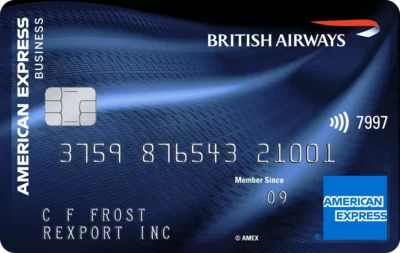
British Airways Accelerating Business American Express
30,000 Avios sign-up bonus – plus annual bonuses of up to 30,000 Avios Read our full review

American Express Business Platinum
40,000 points sign-up bonus and an annual £200 Amex Travel credit Read our full review

American Express Business Gold
20,000 points sign-up bonus and FREE for a year Read our full review

Capital on Tap Business Rewards Visa
Huge 30,000 points bonus until 12th May 2024 Read our full review
For a non-American Express option, we also recommend the Barclaycard Select Cashback card for sole traders and small businesses. It is FREE and you receive 1% cashback on your spending.
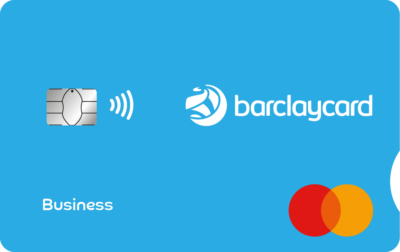
Barclaycard Select Cashback Business Credit Card
1% cashback uncapped* on all your business spending (T&C apply) Read our full review



 Rob
Rob 





Comments (253)